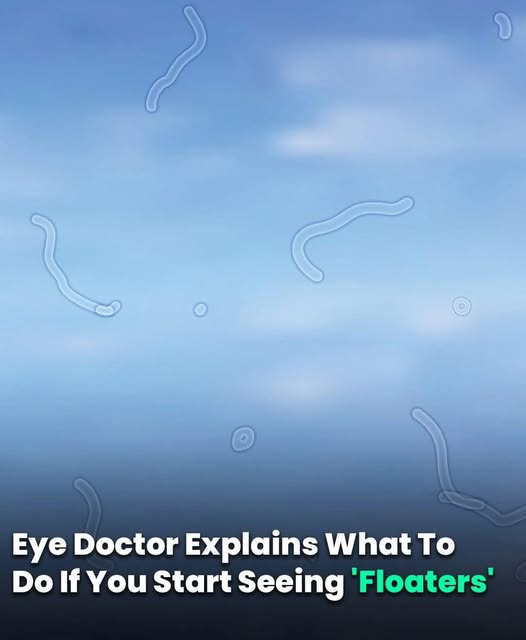Eye floaters are small, often frustrating spots or shapes that seem to drift across your vision. These floaters can appear as black or gray specks, strings, or even cobweb-like shapes, floating in and out of your line of sight. They are incredibly common, affecting approximately seven in ten people at some point in their lives. While they can be annoying, most floaters are harmless and not a cause for alarm.
The underlying cause of floaters lies in the vitreous, a gel-like substance that fills the inside of your eye. Over time, as we age, the vitreous begins to change. The protein fibers within it start to shrink, clump together, and form small clumps or strands. When these clusters of protein cast shadows on the retina, the light-sensitive layer at the back of your eye, it creates the perception of floaters.
For the most part, floaters are a natural part of the aging process and do not indicate any serious eye problems. However, they can sometimes signal a more concerning issue, particularly if they appear suddenly or in larger numbers. When floaters are accompanied by flashes of light, blurred vision, or even pain, it could suggest retinal detachment or other serious eye conditions that require immediate medical attention. Retinal detachment, a rare but potentially sight-threatening emergency, occurs when the retina begins to pull away from its normal position in the eye, and such symptoms should never be ignored.
In the majority of cases, however, floaters fade over time and become less noticeable. While they can be bothersome at first, they typically do not affect your vision permanently. If you find yourself struggling with floaters, simple eye movements—such as looking up and down—can sometimes help shift the floaters out of your direct line of sight. Some people also find relief by blinking rapidly or focusing on a fixed point.
Additionally, maintaining eye health through proper nutrition can play a role in preventing and managing floaters. A diet rich in nutrients that support eye health—such as omega-3 fatty acids, zinc, and Vitamin A—can help keep your eyes in good condition as you age. These nutrients are known to support the health of the retina and the vitreous, potentially slowing the onset of floaters and other age-related eye changes.
While floaters are usually a harmless nuisance, it’s essential to stay vigilant about any changes in your vision. If you notice sudden increases in the number of floaters or if they’re accompanied by flashes of light or other unusual symptoms, don’t hesitate to seek professional medical advice. Early detection of potential issues can often make a significant difference in preserving your eye health and vision in the long term.
